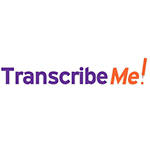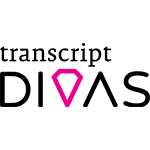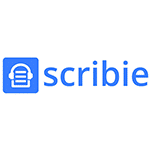How to make money transcribing
Bit of a whizz when it comes to spelling and grammar? Looking for a flexible job to fit around your studies? Here's why transcribing could be the job for you.

Credit: fizkes, ImagesRouges – Shutterstock
There are plenty of part-time jobs out there if you're looking for some extra cash to help with your living costs at uni. But not all of them are going to fit in with your studies.
Transcribing is a flexible job. Most companies allow you to choose as few or as many hours as you want and you can do all of this from home – cutting down on any commutes or late-night taxis home from work.
If we've piqued your interest, read on to find out the ins and outs of becoming a transcriber and what transcription jobs entail. You won't be disappointed.
What's in this guide?
What is transcription?
Transcription is the process of converting audio recordings or spoken word into written text.
This could be any kind of audio recording, but common examples may be interviews, lectures, TV and radio programmes or podcasts.
Someone who transcribes is known as a transcriber or transcriptionist. As a transcriber, you would be expected to listen to a recording and accurately type out everything that is said.
Sounds pretty simple right? Well for the right person, it definitely can be, and we've put together a handy list so you can check if you have the skills needed to become a transcriber.
What skills do you need to become a transcriber?

Credit: Atanas Bezov - Shutterstock
Here are the top skills you'll need to make money transcribing:
- Quick typing speed – If your typing speed leaves something to be desired and you lose valuable seconds figuring out how to type certain characters on your keyboard (who uses semi-colons anyway!), then transcribing may not be the best job for you. As a general guideline, 40–60 words per minute is seen as decent. Anything below this and you're going to struggle. Time is money as they say and most transcription jobs are paid per word or per audio hour, so the quicker you type, the higher your earning potential.
- Active listening – It's pretty easy to listen to somebody talking and get the general gist without too much effort. But when you're transcribing, you need to be singling out every word. You'll need to have a high level of concentration. If your mind wanders during the job it's more than likely your transcription won't be as accurate as needed.
- Good comprehension – It's important you can listen to the audio and interpret the meaning when transcribing to ensure accuracy. There may be times when some words are muffled or people talk over each other and if you can't interpret what's being said it will make it difficult. You might also come across some words you wouldn't use in day-to-day life, but it will help if you can decipher and understand them.
- Good grammar, punctuation and spelling – When you're typing out the audio you'll need to be able to edit typos and recognise where certain punctuation should be used. Yes, there are handy spell-checking tools available to help with this, but some typos can easily slip through these.
- Motivation – Transcription jobs often involve remote working from home. You'll therefore need to motivate yourself to get on with the job at hand as there won't be anyone breathing down your back telling you to get on with it. Removing any distractions from your workspace is a good start!
How to find transcription jobs
Here are the best sites to find paid work as a transcriber:
-
Rev
Rev allows freelancers to choose from hundreds of transcription jobs, from interviews to podcasts or lectures.
It's easy to sign up. You just need to take a quick grammar quiz to show you have a good enough level of English. You will then have access to transcription jobs and can choose to work as little or as often as you like.
Transcribers earn between $0.30–$1.10 (around £0.24–£0.87) per audio minute and get paid weekly via Paypal.
-
GoTranscript
GoTrancript works in a similar way to Rev in that you can sign up by completing a quiz online and if accepted, will have access to a range of transcription jobs on their platform.
However, with GoTranscript, all your transcriptions will be checked and rated by an editor. The more time you put in and the higher your level of accuracy, the more opportunities and pay rates will be available to you.
GoTranscript pays weekly via PayPal or Payoneer and offers an average rate of $0.60 (around £0.47) per minute of audio transcribed.
-
Way With Words
Way With Words is often on the lookout for people with "excellent understanding and knowledge of the English language" and a "good ear for accents".
You don't need experience to work with them, but you will need to complete an assessment to test your knowledge and ability. There are no minimum hours required.
Way With Words offers $0.45–$1.73 (around £0.35–£1.36) per audio minute.
-
TranscribeMe
TranscribeMe is another flexible company offering transcription work to anyone who passes the entrance exam. All they ask is that you complete at least one transcription every 30 days (audios are between two to eight minutes).
From the beginning, general transcribers are paid $15 (around £11.80) per audio hour. However, TranscribeMe has a number of advancement opportunities where you have the potential to earn a higher rate, up to $50 (around £39) per audio hour.
Transcribers are paid weekly via PayPal.
-
Upwork
Though not specific to transcription work, at the time of writing Upwork has over 200 transcription jobs listed on its site.
Upwork is a platform where freelancers can find pretty much any kind of work. You'll need to create a profile, then you can bid for transcription jobs on the site.
According to the site, transcribers on Upwork can earn $17–$22 (around £13.40–£17.30) per hour. However, unlike other sites we've listed, you'll need to pay a 10% freelancer service fee when you earn on Upwork.
-
Transcript Divas
Transcript Divas is a UK-based company with a more formal approach to hiring freelancers.
To apply, you'll need to fill out their application form online which asks about any previous experience and hours of transcribing you'd be willing to accept. If successful, you'll be invited for a telephone interview.
Transcript Divas pays between £0.62–£1.89 per audio minute, with an average of £0.90. The rate will depend on how quickly the recording needs to be turned around and how complex it is. Freelancers need to invoice to get paid to a UK bank account.
-
Scribie
Scribie offers fully flexible, no-obligation transcription jobs. To access them, you'll need to submit a test file, following their guidelines.
If accepted, you'll have access to the transcription files online and you can pick and choose as many as you like. All files are six to 10 minutes long and once you've picked one, you'll have two hours to transcribe it.
As with the other companies we've already mentioned, Scribie pays per length of the audio file rather than how much time you spend on it. And at a pretty low rate of $5–$20 (around £3.95–£15.75) per audio hour (£0.06–£0.26 per audio minute), we'd suggest trying the other options first!
How much do transcribers make?
We've included the rates you can earn when starting as a transcriptionist from the sites above. However, how much you earn transcribing depends on how much you're willing to work, or how much you can fit around your studies.
As we touched on earlier, your typing speed will have a big impact on how much you can earn. As transcription jobs are pretty much always paid per audio minute or hour, the quicker you type what's being said, the more audio hours you'll get through in a shorter space of time.
When starting out, a transcriptionist may take eight minutes to transcribe one minute of audio, whereas an experienced transcriber may take as little as three minutes to do the same.
It's worth checking out online courses that can improve your skills, boost your CV and increase your chances of a higher pay rate.
There are also opportunities to earn more if you specialise in certain fields. For example, medical and legal transcribers have the potential to earn a higher rate of pay. And if you have more than one language and can combine translation and transcription, you will find people are falling over heels to hire you.
What equipment do you need to become a transcriber?

Transcription work can be done with limited equipment. At a very basic level, all you'll need is a laptop and a good internet connection.
However, there are some things you can get to make your life a little easier and help you get the job done quicker. And bearing in mind that when it comes to transcription work, time = money, these could be well worth investing in.
Here are a few tools that will make life as a transcriptionist a little easier:
- Noise-cancelling headphones – You'll spend a lot of time wearing these, so they need to be comfortable and good quality. It's also common to receive audio files that aren't very clear, where it may be difficult to pick out certain speakers or words. Noise-cancelling headphones can make a huge difference and prevent you from straining to hear.
- Foot pedal – Though not a must, a foot pedal can massively speed up the process of transcribing. It will let you stop and start the audio files with your feet, leaving your hands free to continue typing. You can also forward or replay sections of a file easily.
- Ergonomic keyboard – You're going to be doing a lot of typing! An ergonomic keyboard can help protect your wrists from repetitive strain injuries. They also make it more comfortable when you're typing for prolonged periods, which let's face it, you're probably doing already when tapping out those essays for uni, so it's unlikely to be a wasted investment.
What are the benefits of being a transcriptionist?
There are a bunch of benefits to transcription work. We've listed a few below:
- Flexible hours – Work to your schedule as often or as little as you choose.
- Work for yourself – With no one to answer to, you can be your own boss and concentrate on getting the job done.
- Working from home – No need to waste valuable time getting to and from work and no worries over travel costs.
- Great for your CV – If you're studying a language degree and planning to make a career out of it, perhaps writing or translating, transcription work will look great on your CV when you're looking for a graduate job.
So if you've got the skills needed and it's the flexibility you're looking for, transcription work could be a great option for you.
We've found a load of other ways you can boost your CV and job prospects while doing the stuff you love.















